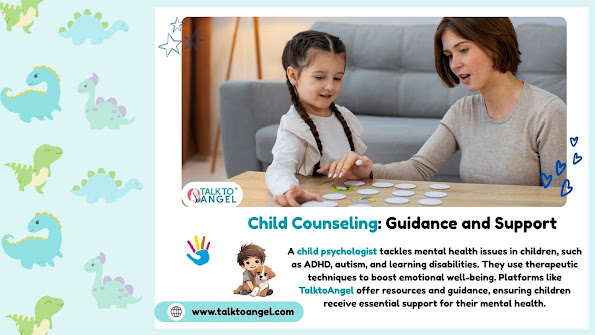Child Psychologist: A Guide to Understanding Anxiety in Children
As a child psychologist, I have encountered many young patients struggling with anxiety. To give children the support and assistance they need, parents and other caregivers must be able to spot the early warning signs of anxiety. Anxiety in children can manifest in various ways, including physical symptoms, behavioral changes, and emotional distress. By understanding these signs and implementing effective support strategies, we can help children navigate their anxiety and build resilience for the future.
What are the Early Signs of Anxiety in Children?
Early treatments for anxiety in children depend on identifying its early symptoms. Some common signs to look out for include:
Excessive Worry: Children with anxiety may exhibit constant worry or fear about everyday situations.
Physical Symptoms: These may include stomachaches, headaches, or other unexplained physical discomfort.
Behavioral Changes: Anxiety can lead to changes in behavior, such as irritability, restlessness, or difficulty concentrating.
Avoidance: Children who experience anxiety may steer clear of social situations or activities that make them feel anxious.
How Can Parents and Guardians Help Kids Who Are Anxious?
Supporting children with anxiety requires a multi-faceted approach that addresses their emotional, physical, and social well-being. Here are some effective strategies for supporting anxious children:
Open Communication: Encourage kids to freely and without condemnation share their emotions and anxieties.
Establish Routine: Establishing a consistent daily routine can provide a sense of stability and predictability for anxious children.
Encourage Relaxation Techniques: Teach children relaxation techniques such as deep breathing or mindfulness to help them manage stress and anxiety.
Seek Professional Help: Consult with a child psychologist or mental health professional for expert guidance and support.
ADHD Disorder and Autism Spectrum Disorder: Co-Occurring Conditions with Anxiety
Children with ADHD Disorder or Autism Spectrum Disorder may be at a higher risk of developing anxiety. It's essential for parents and caregivers to be aware of the co-occurrence of these conditions and how they can impact a child's overall well-being. Seeking support from professionals who specialize in ADHD, Autism Spectrum Disorder, and anxiety can help create a tailored intervention plan that addresses the unique needs of each child.
The Role of Online Counselling and Speech Therapists in Supporting Anxious Children
Online counselling platforms like TalktoAngel offer a convenient and accessible way for children to receive support for their anxiety. Through virtual sessions with trained therapists, children can learn coping strategies, build resilience, and develop skills to manage their anxiety effectively. Speech therapists who specialize in working with children can also play a crucial role in supporting anxious children by addressing communication challenges and building confidence.
Overcoming Developmental Delay and Childhood Trauma: Building Resilience in Anxious Children
Children who have experienced developmental delays or trauma childhood may be more vulnerable to anxiety. It's essential to provide these children with a safe and nurturing environment where they can heal, grow, and thrive. By offering specialized support, therapy, and interventions, we can help anxious children overcome their challenges, build resilience, and lead fulfilling lives.In conclusion, understanding anxiety in children is crucial for providing the necessary support and intervention to help them thrive. By recognizing early signs of anxiety, implementing effective support strategies, and seeking professional help when needed, we can empower anxious children to navigate their anxiety and build resilience for the future.
Meta Description:
Learn about the early signs of anxiety in children and effective support strategies from a child psychologist. Find out how online counselling and speech therapists can help anxious children overcome their challenges.

%20(1).jpg)
%20(1).jpg)
.jpg)
Comments
Post a Comment